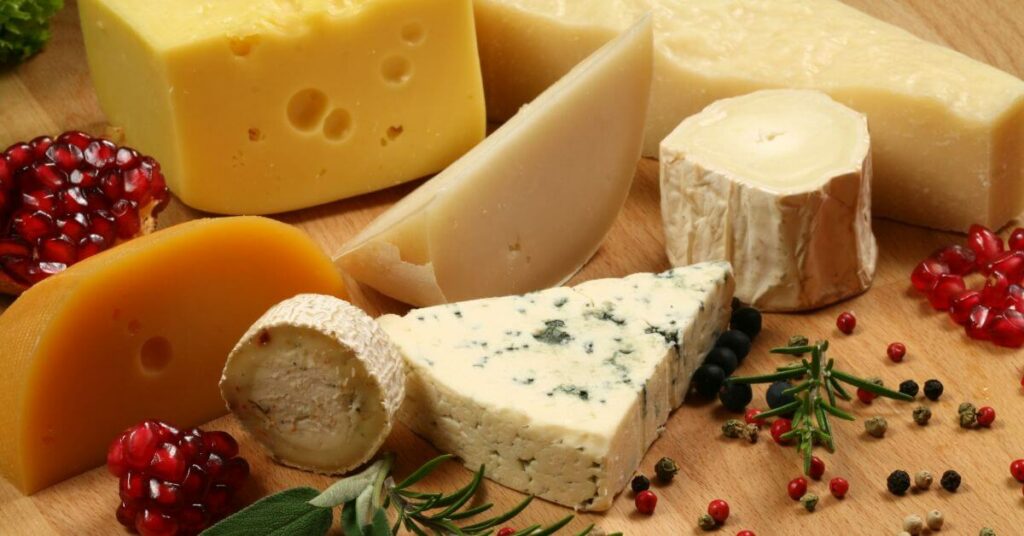The ketogenic diet is a low-carb, high-fat eating plan that forces the body into a metabolic state called ketosis. While avoiding carbohydrates is a fundamental aspect of this diet, many wonder if cheese, a favorite indulgence for many, is permissible. Understanding the role cheese plays in a keto diet is essential before coming to any conclusions. Let’s explore the question “Is cheese keto?” and provide the answers you’ve sought.
The ketogenic diet has gained immense popularity in recent years, as it promises weight loss and improved health. But does that mean you have to give up cheese to stay in ketosis? Many people are still determining whether cheese can be included in a keto diet or if it would hinder their progress.
Table of Contents
Is cheese keto?
Yes, cheese is a keto-friendly food because it is low in carbs and high in fat. Some types of cheese are low in carbs and suitable for a keto diet.
Cheese is a good option for those following a keto diet because it provides a high source of healthy fats and a minimal amount of carbohydrates. Cheese contains a lot of fat, so it helps maintain a low-carb, high-fat diet by keeping you full and satisfied. Additionally, cheese contains protein and essential nutrients like calcium and vitamin D.
Cheese can offer various health benefits when consumed in moderation, such as promoting bone health, aiding in weight management, and improving overall heart health. However, choosing high-quality, full-fat cheese options and being mindful of portion sizes is important to avoid consuming excessive calories and fat. Incorporating cheese into a keto diet can add flavor and variety to meals while helping to maintain ketosis and achieve weight loss or health goals.
Why eat cheese on the keto diet?
People following a keto diet often choose cheese because of its higher fat, moderate protein, and low carb content. This makes it a great option for meeting the macronutrient requirements of a keto diet. The high fat content in cheese helps keep you full and satisfied, while the low-carb content ensures that you stay in ketosis.
When choosing cheeses for a keto diet, it’s important to prioritize options with high-fat content and minimal processing. This means opting for natural, full-fat cheeses over low-fat or processed varieties. Minimal processing ensures that the cheese retains its natural fat content and doesn’t contain added sugars or fillers, making it a better choice for those on a keto diet.
Which are the best cheeses for keto?
For individuals following the keto diet, choosing cheese that is high in fat and minimally processed is recommended. Additionally, cheese that contains natural electrolytes like sodium, potassium, and magnesium can help support the nutritional needs of those on the keto diet.
Increasing electrolyte intake has been found to alleviate symptoms of the keto flu, which can be challenging when initially transitioning to the diet.
Consider the following options for the best keto-friendly cheese:
Cheddar cheese
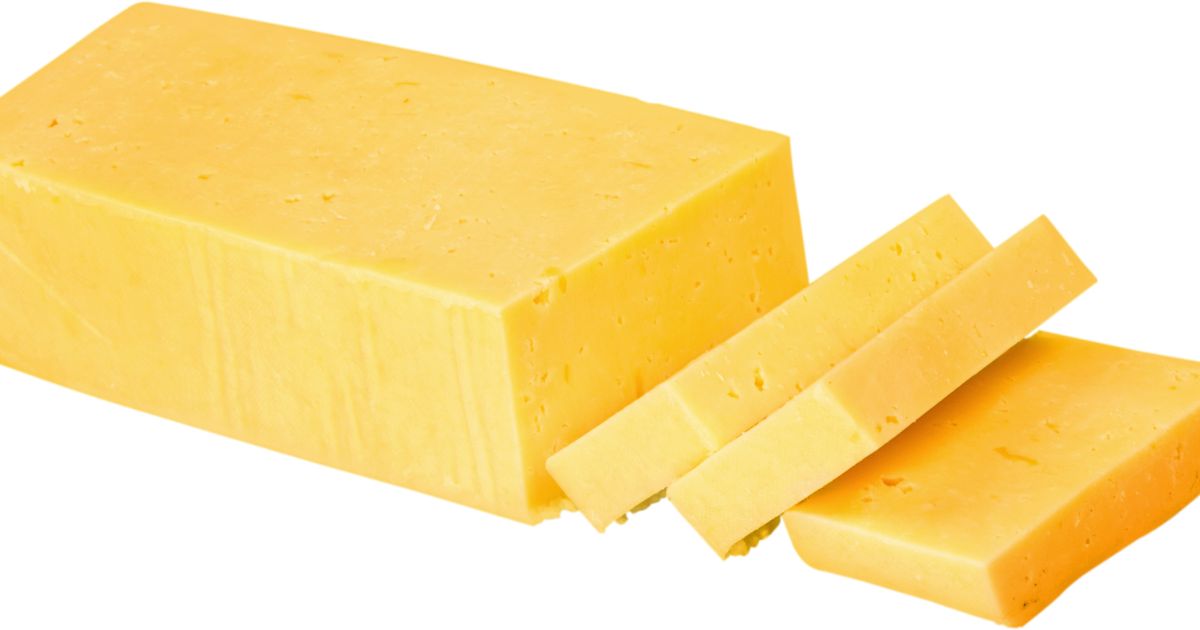
Cheddar cheese is a great option for those following a keto diet due to its high protein and fat content and low carb count. This makes it a versatile and nutritious addition to keto-friendly meals. Cheddar cheese comes in a wide range of flavor profiles, from mild to extra sharp, allowing for variety in keto meals.
Cheddar cheese can be used in various keto-friendly meals, such as melted on eggs or avocado, for a high-protein and satisfying breakfast. It can also be included in a charcuterie board for snacking, providing both protein and fat to keep you feeling full and satisfied.
A 1-ounce serving of mild cheddar cheese contains 9 grams of fat, 7 grams of protein, and less than 1 gram of carbs. This makes it suitable for the keto diet.
Moreover, it contains significant amounts of vitamin A, which promotes healthy vision and immunity. Cheddar cheese is a versatile and tasty option for those following a keto diet with its high protein, low carb, and ample fat content.
Goat cheese
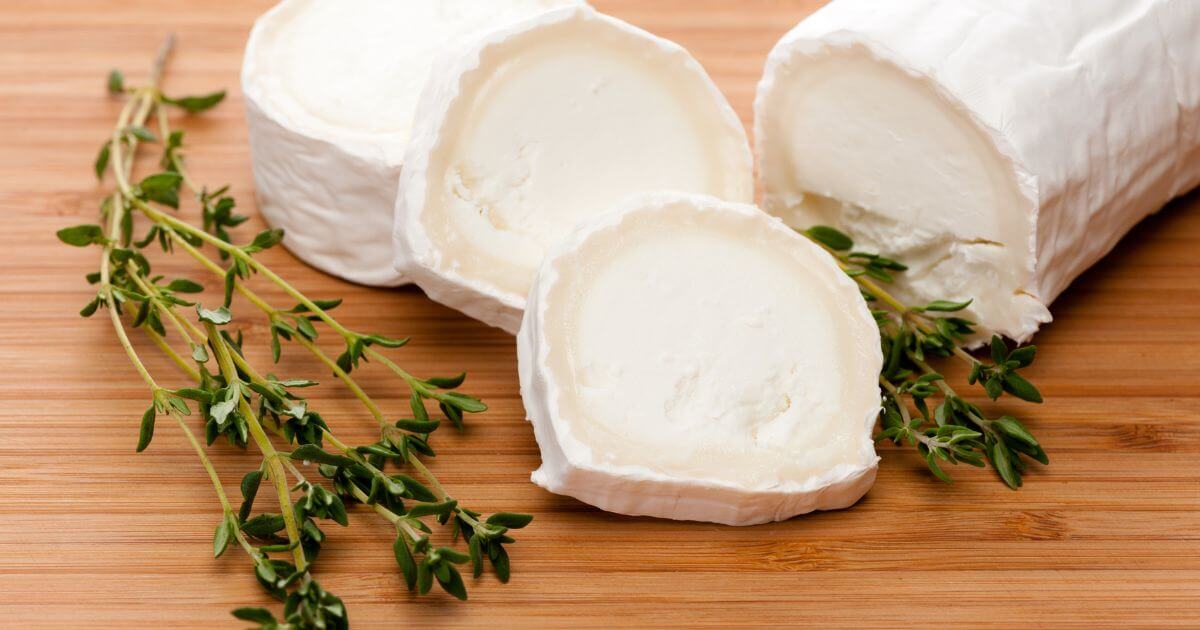
Goat cheese is a highly versatile and nutritious ingredient for keto-friendly recipes. It is low in lactose, making it ideal for those with lactose intolerance. Additionally, it is high in fat and protein, making it a great option for those following a low-carb, high-fat diet.
The serving size of 1 ounce contains 9 grams of fat, 7 grams of protein, and very few carbs. This makes it a great choice for those on the keto diet.
Nutritionally, goat cheese is a good source of healthy fats and contains significantly less lactose than cow’s milk products, which makes it easier to digest for those with lactose intolerance. Its high protein content also helps to keep you feeling full and satisfied.
In keto-friendly recipes, goat cheese can be used in a variety of ways, from salads and omelets to stuffed chicken breast and creamy sauces. It can add a creamy texture and tangy flavor to dishes without adding excessive carbs.
Overall, goat cheese is a great option for those looking to incorporate high-fat, low-lactose dairy into their keto diet and can be used in a wide range of delicious and satisfying low-carb dishes.
Gouda
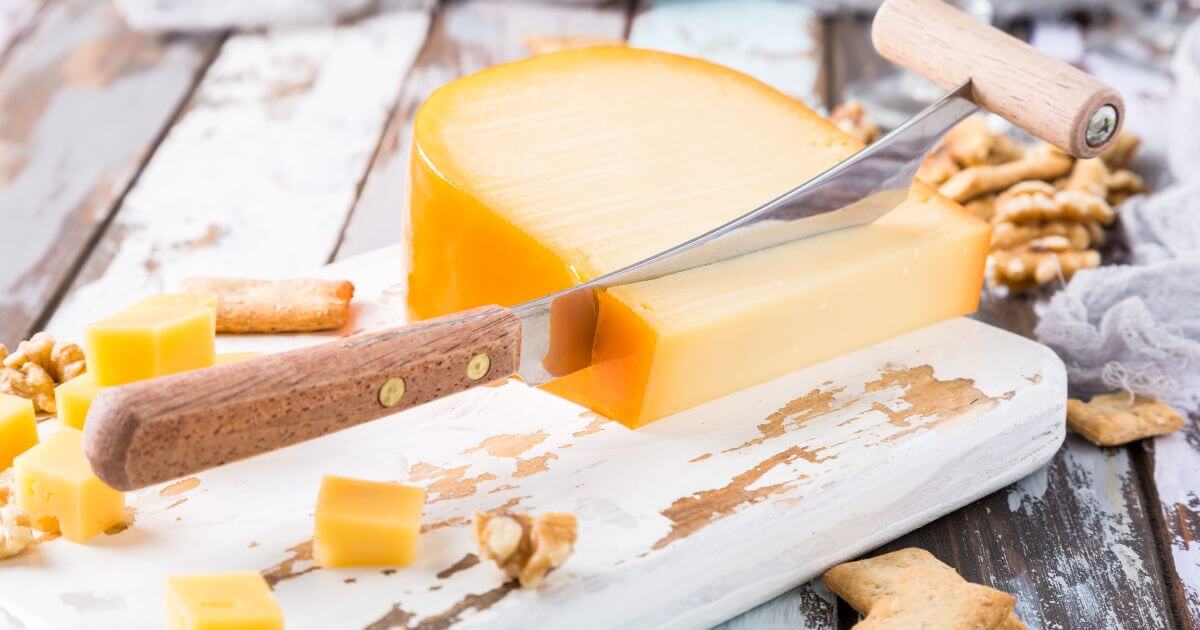
Gouda cheese comes in various forms, including traditional cow’s milk Gouda as well as goat’s milk Gouda. Goat’s milk Gouda offers a unique, slightly tangy flavor compared to the milder cow’s milk version. It also contains higher levels of protein and healthy fats, making it an excellent choice for those looking to increase their protein intake while following a low-carb diet. Additionally, goat’s milk Gouda tends to be easier to digest for individuals who are lactose intolerant.
One serving of this food contains 8 grams of fat, 7 grams of protein, and only 1 gram of carbs. This makes it a good fit for those following the keto diet.
When incorporating goat’s milk Gouda into your keto meal plan, consider pairing it with nuts, olives, and charcuterie for a satisfying and low-carb snack. It can also be melted over grilled vegetables or used in a creamy sauce for a delicious keto-friendly meal. The tangy flavor of goat’s milk Gouda pairs well with bold flavors like roasted red peppers, smoked meats, and dark leafy greens.
Cream cheese
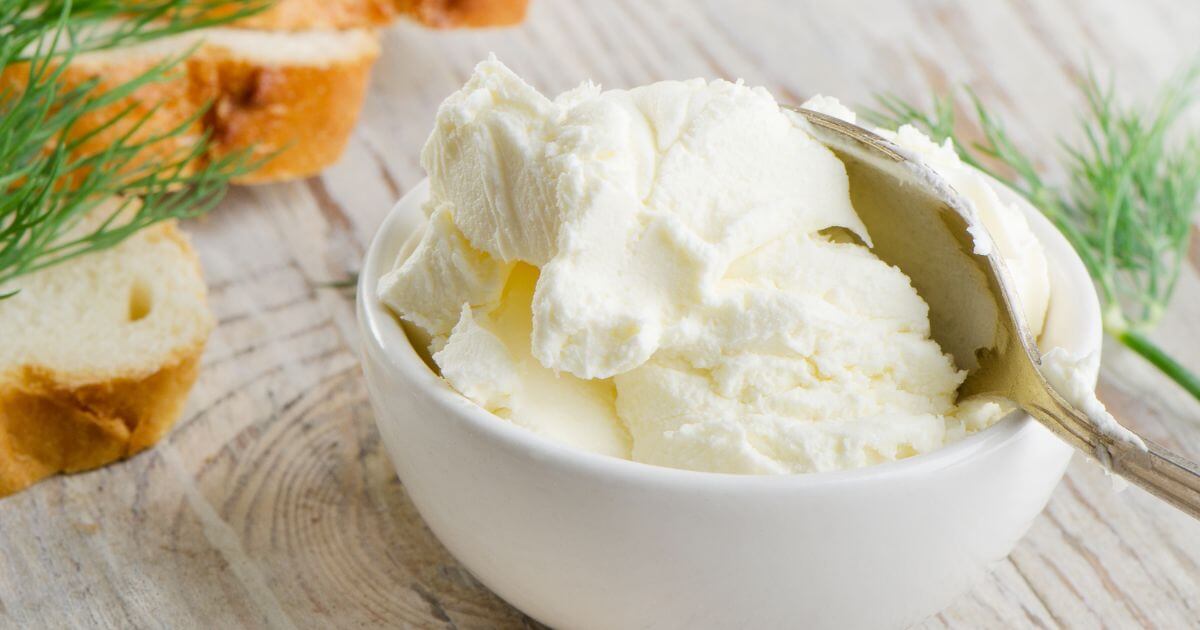
Cream cheese is a keto-friendly dairy product high in fat and low in carbohydrates, making it a fantastic choice for those on a ketogenic diet. This creamy and tangy cheese is also a good source of protein, calcium, and vitamin A. It can be used in various sweet and savory keto recipes, making it a versatile ingredient in cooking and baking.
The USDA states that a 1-ounce serving of cream cheese contains 84 calories, 8 grams of fat, 1 gram of carbs, and 2 grams of protein.
In sweet keto recipes, cream cheese can be used to make low-carb cheesecakes, frosting for keto-friendly cupcakes, and creamy fillings for keto desserts. In savory keto dishes, it can be used to make creamy sauces and dips and as a base for keto-friendly pizza crust.
Some specific examples of keto dishes that can be made with cream cheese include keto cheesecake, cream cheese pancakes, bacon and cream cheese stuffed mushrooms, buffalo chicken dip, and crustless keto quiche. Cream cheese can also thicken and add richness to keto-friendly soups and casseroles. Its versatility and low-carb content make it a keto kitchen staple for sweet and savory dishes.
Blue cheese
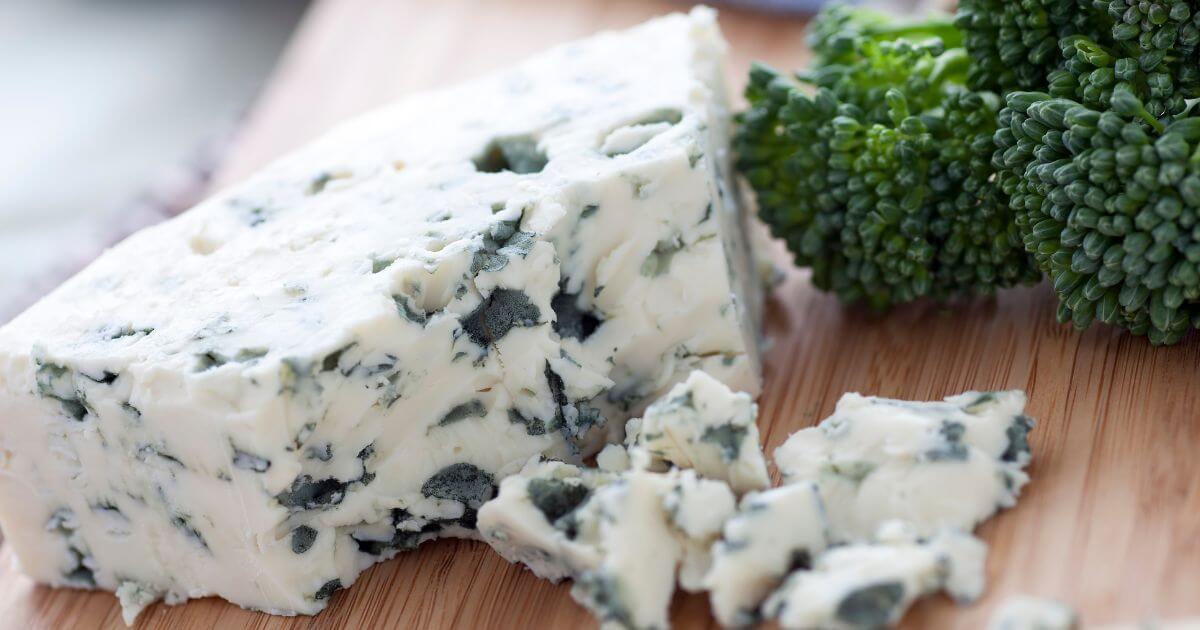
Blue cheese can be enjoyed in a variety of ways on the keto diet due to its versatility and delicious taste. It can be crumbled and added to salads for a flavorful and creamy touch, blended into dips for a tasty appetizer, or used as a sauce for vegetable noodles or steaks to add richness and depth of flavor.
Blue cheese is a great addition to the keto diet as it is high in fat, moderate in protein, and contains very few carbs. A 1-ounce serving of blue cheese typically contains around 8 grams of fat, 6 grams of protein, and less than 1 gram of carbohydrates, making it a great option for those following a keto lifestyle.
Blue cheese can be used to make cheese crisps for keto-friendly snack ideas. Bake small mounds of blue cheese on a lined baking sheet until crispy. These cheese crisps are delicious and satisfying snack that provides a good amount of fat and protein, making them a perfect option for the keto diet. With its rich flavor and keto-approved nutrient profile, blue cheese is a tasty and versatile ingredient that can enhance various keto-friendly dishes and snacks.
Worst cheeses to eat on keto
While many types of cheese can be included in a keto diet, and certain cheeses are especially beneficial for keto, it is important to be aware of the cheeses that should be avoided on this diet.
Cottage cheese
Cottage cheese is often considered the worst cheese on the keto diet due to its higher carbohydrate content than other cheeses. A half-cup serving of cottage cheese contains around 6-8 grams of carbohydrates, significantly higher than most other types of cheese. Additionally, cottage cheese has a lower fat content, making it less ideal for the high-fat, low-carb requirements of the keto diet.
Cottage cheese is made from separating casein curds and liquid whey, the major milk protein. It is generally considered a healthy cheese option but doesn’t work well with the keto diet.
A 1/2-cup serving of full-fat cottage cheese contains 5 grams of fat, 14 grams of protein, and 5 grams of carbs.
Although it’s not high in carbs, small amounts can quickly add up. It’s best to limit cottage cheese consumption when on a keto diet.
Ricotta cheese
Ricotta cheese is not recommended for a keto diet because it is high in carbs.
According to the USDA, a ½-cup serving of ricotta contains 204 calories, 14 grams of fat, 9 grams of carbs, and 10 grams of protein.
Despite its high fat and protein content, the carbs in ricotta are also high.
Processed cheeses
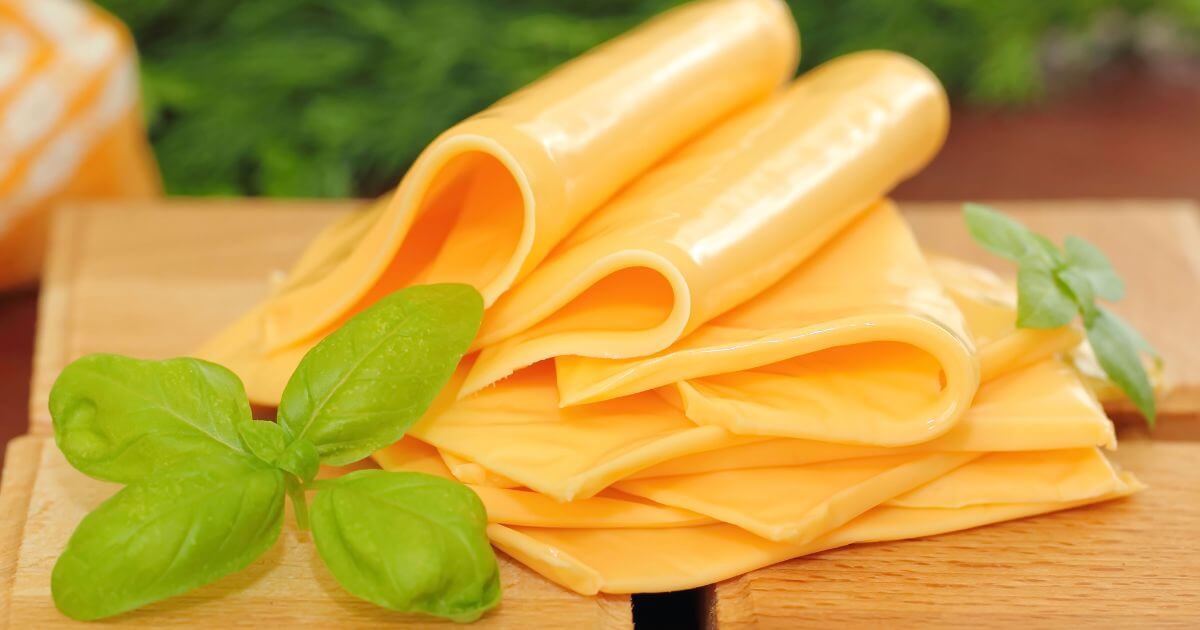
The worst processed cheeses for the keto diet are American cheese, cheese spreads, and cheese sauces. These processed cheeses are high in carbs and low in fat, making them unsuitable for a keto diet. American cheese, for example, contains approximately 2 grams of carbs per slice and is lower in fat compared to natural cheeses like cheddar or brie.
These processed cheeses should be avoided on the keto diet because their high carb content can negatively impact ketosis. Ketosis is a metabolic state where the body burns fat for energy instead of carbohydrates. Consuming processed cheeses high in carbs can disrupt ketosis and hinder the body’s ability to stay in this fat-burning state.
Additionally, the low amount of fat in these processed cheeses can make it more challenging to meet the high-fat macro requirements of the keto diet. Choosing these processed cheeses could lead to an inadequate intake of healthy fats, which are essential for achieving ketosis and maintaining overall health on a ketogenic diet. Therefore, it is best to opt for natural cheese options with higher fat content and lower carbs to support the goals of the keto diet.
The bottom line
A ketogenic diet consists of a low-carb, high-fat diet. To maintain ketosis, your body uses fat instead of carbs for fuel. To make up for lost calories from carb restriction, keto dieters eat high-fat foods like cheese. Some cheeses are better for the keto diet due to their carb and fat content. The best keto cheeses are cheddar, Gouda, goat cheese, and blue cheese. Cottage cheese and processed varieties that are low in fat are the worst. Remember these cheeses to promote ketosis and meet dietary goals on the keto diet.
